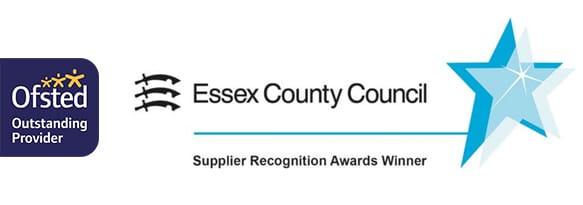
What is fostering?
Fostering is caring for a child or children who cannot stay with their own family.
A child will be placed with a foster family whilst their own family overcome problems, during care proceedings, or until an adoptive family is found.
Foster families are trained and knowledgeable in ensuring that the needs of each individual child are met, and they provide them with a stable, caring environment during their time in foster care.
Why are children placed in foster care?
- Parental illness/hospital stay
- Loss of a parent
- Family emergency
- Neglect
- Domestic abuse/violence
- Care proceedings

What types of fostering are there?
The reason a child needs fostering generally determines the type of support they’ll need. All children need a stable, caring environment to stay during their foster placement – mainstream fostering. Some children may need the additional support which can be provided by a specialist framework of professionals – we call this therapeutic fostering. So let’s discuss the difference:
Mainstream fostering
Mainstream fostering is the most common form of fostering which gives a child or young person a safe place to stay, perhaps for a night or two whilst their family are helped to resolve any problems they need to overcome, through to a longer-term or even permanent arrangement.
Therapeutic fostering
Some children have experienced difficult circumstances which have had a significant effect on their day to day presentation or behaviour, they will most likely need specific intervention and additional support. As a therapeutic foster carer, you’ll be part of a team of highly experienced professionals focused on helping you and the child overcome any difficulties.

How long are foster placements?
The length of a foster placement varies greatly and is generally determined by the reason a child needs fostering.
Short-term fostering
The aim of a short-term fostering placement is to provide safety and stability to a child, usually at short notice. This could be either days, weeks or even months. It could be due to a home or family emergency, a parent’s short-term illness, respite care or for whatever reason their parents or caregivers cannot look after them. Most children in short-term fostering placements are kept as close as possible to their own family so that they can visit when possible.
Long-term fostering
Children who may need long-term foster care may have suffered parental loss, neglect, abuse, trauma or domestic violence. These children need to be placed in a caring and stable environment until they can return to their family, or a suitable adoptive family is found. Their background many have been difficult, and they may need additional support in day to day life.
Life as a foster carer
Hear it from the Wilsons about getting in touch, the initial process and ongoing support when you need it.
How can I find out more?
Talking to an experienced professional at this point can be invaluable and can help you make your decision to become a foster carer. An expert fostering agency will have a supervising social worker who can visit you in your home and talk you becoming a foster carer. They can give you all the information you need, answer any questions you have and help you decide what type of fostering may be right for you.
Free fostering pack
To get started, download our free fostering information pack
Written by
Sarah Belsham – Senior fostering administrator
01304 827777 www.channelsandchoices.co.uk


What I Wish I Knew Before Fostering
Researching fostering and choosing the right agency can be the first MAJOR hurdle. You need to be confident they will provide you with the best training and support.
- Compare 3 fostering agencies
- 10 best practice checkpoints
- Confidently choose the best agency
I hope this helps you become more confident when you talk to fostering agencies as you will know exactly what to ask.
Sarah Belsham – Senior fostering administrator
Fostering checklist
Compare 3 fostering agencies with these 10 best practice check points.
Want some great advice?
Speak to our fostering team
We speak to new and experienced carers every day, so call us on 01304 361 888 or send a callback request.
Download a fostering brochure
Get a digital copy of our fostering brochure, which is jammed with great info. Download your copy.